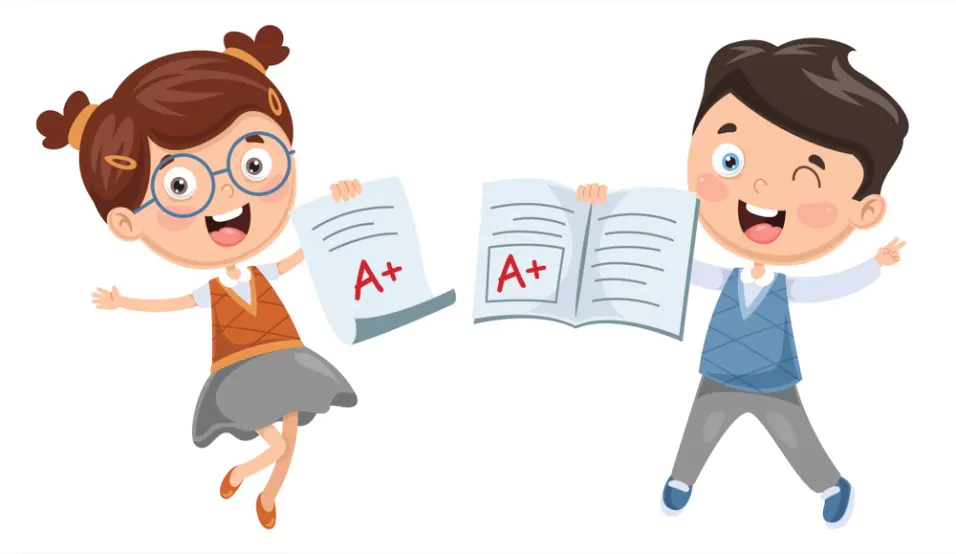How to pass in exam without studying? 9 Interesting Facts

Exams are an inevitable part of a student’s life. However, they can be stressful, especially if you are not prepared. Passing an exam is an important thing for students, but sometimes it seems impossible due to several reasons, such as poor sleep, poor health conditions, sleepless nights, and lack of preparation. In this case, you may turn to shortcuts and easy ways to overcome the stress of exams. However, it is not advisable to do so. Shortcuts can easily backfire and can have a marking effect on your career.
That is why in this blog, we will share with you some easy tips that will allow you to study without the burden of studying. The tips and tricks that we will share can benefit most students and help you not just pass exams but also rank good marks.
1 List of proven tips and tricks on how to pass in exam without studying
Understand the Importance of Exams
Before diving into the tips and tricks, it is important to understand the importance of exams. Exams are an important way to measure your knowledge and understanding of a particular subject. They are also used to assess your ability to recall and apply the knowledge you have learned.
Passing exams without studying should not be your ultimate goal. Instead, focus on understanding the concepts and topics covered in the exam. This will help you, in the long run, to pass exams and ensure that you understand the subject well.
Prepare Your Brain
Your brain is the most important tool you have when it comes to passing an exam without studying. It is essential to keep your brain healthy and active to ensure that it functions at its best during the exam. Here are some tips to prepare your exam paper with your brain:
- Get enough sleep: A good night’s sleep is essential to ensure that your brain is well-rested and ready to function at its best during the exam. It is necessary to get at least 6-8 hours of sleep to keep your mind focused.
- Stay hydrated: Drinking enough water will help keep your brain hydrated and alert during the exam. Remember to carry a water bottle to the exam hall.
- Take deep breaths: Practice deep breathing in the morning to keep stress away. This practice can help you stay calm and focused during the exam season.
- Eat healthily: A balanced diet will provide your brain with the necessary nutrients to function at its best. Stay away from fast food so that you do not feel any untimely stomach aches. You can plan to have your favourite meal at the end of the exams as a way of a reward to yourself for a job well done.
Understand the Exam Format
Understanding the exam format is essential to pass an exam. Most exams have a set format, such as multiple-choice questions or essay questions. Knowing the exam hall format will help you prepare for the exam and ensure that you answer the questions correctly.
For example, if the exam is multiple choice, you should focus on understanding the small topics covered in the exam. This will help you eliminate false questions and select the right answer. On the other hand, if the exam is an essay, you should focus on understanding and writing the vast topics and points covered in the entire syllabus. This will help you structure your answer and write a coherent essay.
Take Advantage of Last Minute Preparations
While it is impossible to prepare for an exam in a few hours, last-minute preparations can be beneficial. Here are some tips for last-minute test preparations:
- Review necessary notes: Go over the notes you have taken during lectures and revise important points.
- Make a quick call to your teacher: If you have any last-minute questions, ask your teacher for clarification. (Only if your teacher has allowed you to do so.)
- Review past question papers: Reviewing past question papers will help you understand the exam format and the types of questions that will be asked so that you can mentally prepare for your question paper.
- Focus on important topics: Rather than studying anything and everything at the last minute, focus on important topics given by your teacher that are most likely to be asked in the exam.
- Spend time on the easiest questions: If you are running out of time, spend more time on the easiest questions that you can remember easily.
Stay Calm and Focused
Staying calm and focused is essential to pass an exam. Here are some tips to help you stay calm and focused:
- Take deep breaths: Taking deep breaths can help you stay calm and focused during the exam.
- Stay hydrated: Drinking enough water will help keep your brain hydrated and alert during the exam.
- Stay alert: Pay attention to the exam questions and read them carefully to avoid answering incorrectly.
- Take breaks: If you feel jittery, take a quick break and walk around to clear your mind.
- Leave things you don’t know: If you don’t know the answer to a question, leave it and move on to the next question without wasting much time.
Don't Panic
Panic can be your worst enemy when it comes to passing an exam without studying. Panicking can cause you to forget everything you have learned, resulting in incorrect answers. Here are some tips to help you avoid panic:
- Be prepared: If you are well prepared, you will have more confidence in your ability to pass the exam.
- Stay positive: A positive mindset can help you stay calm and focused during the exam.
- Stay organized: Keep all your necessary notes and materials organised and easy to access during the exam.
- Keep track of time: Manage your time wisely and ensure that you have enough time to answer all the questions.
- Be aware of negative marking: If there is negative marking, avoid answering questions you are unsure of.
Answer the Questions
It may seem obvious, but it is important to answer the question. Unfortunately, many students make the mistake of not answering the question or not answering the question paper correctly. Here are some tips to help you answer the question:
- Read the question carefully: Make sure you understand the question before answering it.
- Answer all parts of the question: Ensure that you answer all parts of the question to receive full marks.
- Use the right frame of mind: Use clear and concise language to answer the question.
- Write neatly: Write legibly to avoid losing marks due to illegible handwriting.
- Focus on the point: Stick to the point and avoid irrelevant information.
Use Common Sense
Common sense can be your best friend when it comes to passing an exam without studying. Here are some tips to help you use common sense to pass the exam well:
- Use logic: If you are unsure of the answer, use logic to arrive at the right answer.
- Use the process of elimination: Eliminate false answers to arrive at the right answer.
- Make educated guesses: If you are unsure of the answer, make an educated guess based on your knowledge of the subject.
- Check your answers: If you have time, go over your answers and check for any errors or incorrect answers.
Remaining Time Management
Managing the remaining time is important to pass an exam without studying. Here are some tips to help you manage the remaining time:
- Prioritise your remaining time: Focus on the questions that carry more marks and complete them first.
- Don’t spend too much time on one question: If you are stuck on a question, don’t spend too much time on it. Move on to the next question and come back to it later.
- Stay within the time limit: Keep track of time and ensure that you finish the exam within the given time limit.
- Don’t rush: While it is important to manage time, don’t rush through the exam. Take your time and answer the questions carefully.
2 Wrapping Up
In conclusion, passing an exam without studying is not an impossible feat, but it requires preparation, focus, and common sense. It is important to understand the importance of doing exams without studying and focus on understanding the concepts and topics covered in the exam. Preparation should begin with the health of your brain and body, followed by understanding the exam format and taking advantage of last-minute preparations. Staying calm and focused, avoiding panic, answering the question correctly, using common sense, and managing remaining time is key to passing an exam without studying. Remember to take a deep breath, stay hydrated, and stay positive. With these tips, you can pass exams without studying and succeed in real life.
Community Q&A
About This Article
This article has been viewed 553 times.



